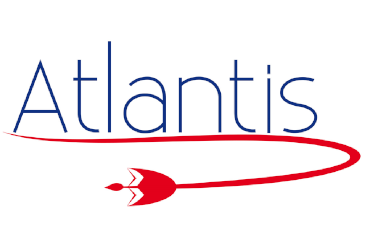
I make a donation

I make a donation

objectif
Oral anti-Xa anticoagulation after trans-aortic valve implantation for aortic stenosis
date de réalisation
2016
nombre de patients
1510
nombre de centres participants
International multicentric trial
type de financement
Private (BMS & Pfizer)
Référence
NCT02664649
Anti-Thrombotic Strategy After Trans-Aortic Valve Implantation for Aortic Stenosis (ATLANTIS)
Recommendations on anti-thrombotic treatment after TAVI ((transcutaneous aortic valve implantation) have a weak level of proof and there is no randomized trial to define the best anti-thrombotic strategy.
ACTION leads a clinical academic randomized trial, promoted by the Assistance Publique des Hôpitaux de Paris (AP-HP) aiming to demonstrate the superiority of an anticoagulation strategy using apixaban, compared with a usual strategy based on antivitamines K i.e. on platelet anti-aggregation.
Guidelines on antithrombotic therapy after TAVI are scarce and no randomized evaluation has been performed to demonstrate what the optimal antithrombotic strategy is. The rates of major stroke and of major bleeding on DAPT, the standard of care in TAVI (Class IIb LOE C), are respectively as high as 3% and 10% within the first 30 days excluding the perioperative period. In addition, the rate of MACCE is estimated to be of 15% on DAPT. However, more than half of senior patients display high on-clopidogrel platelet reactivity, less than 1/3 undergo coronary stent implantation prior to valve replacement and more than 1/3 display transient atrial fibrillation (AF) during hospital stay. Anticoagulation appears therefore to be underused in this high stroke risk population and has never been evaluated in post-TAVI procedures. Non-vitamin K Oral Anticoagulants (NOAC) have shown superiority or non-inferiority versus VKA to prevent cardio-embolic events with a consistent reduction in intracranial bleeds in patients with non-valvular AF. Apixaban, a direct anti-Xa inhibitor, is the only NOAC which has demonstrated a mortality benefit associated with significant reductions in embolism and major bleeding versus VKA. In addition, apixaban is the only NOAC which has demonstrated superiority over aspirin to prevent cardio-embolic events with a similar safety profile in non-valvular AF patients with a contraindication to VKA. The investigators therefore formulate the hypothesis that apixaban is superior to SOC to prevent cardiovascular events in post-TAVI procedures.
The main purpose is to demonstrate superiority of a strategy of anticoagulation with apixaban 5mg bid (Anti-Xa Group) with dose adjustment as compared to the current standard of care (SOC Group = VKA or Antiplatelet therapy) as measured by the time from randomization to the first occurrence of any event of the composite endpoint of death, myocardial infarction, stroke/TIA/systemic embolism, intracardiac or bioprosthesis thrombus, episode of deep vein thrombosis or pulmonary embolism, life-threatening or disabling or major bleeding at one year follow-up defined according to VARC2.
Patients who underwent a clinically successful TAVI procedure. Non-inclusion criteria include any recent acute cardiovascular event, mechanical heart valve, necessary use of prasugrel or ticagrelor (new P2Y12 inhibitors), concomitant medical illness associated with reduced survival, end stage renal failure defined as a creatinine clearance ‹ 15mL/min.
source clinicaltrials.gov
Publications
Presentations

En cours
En cours
En cours